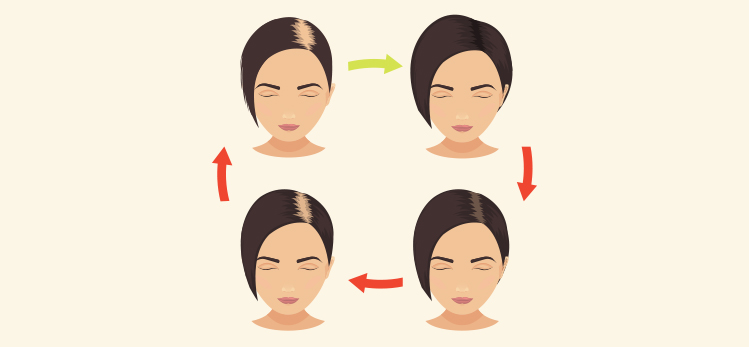Does Stress Cause Hair Loss?
Hair loss is a growing concern among both men and women. About a third of the hair on a human head is a normal part of the growth cycle.
When the shedding of telogen hair occurs by pulling out during combing, washing, or shampooing, it may lose hair volume. Three types of hair loss can be associated with high stress levels: Telogen effluvium, Trichotillomania, and Alopecia areata.
Hair loss can also cause uneven hair growth because there's a lot of tension on the hair shafts when they're growing. So, if stress is affecting your hair, what can you do about it?
Understand Your Hair Loss Triggers
Your hair follicles constitute two components: the bulb and the cortex. The bulb produces your hair shaft, while the cortex is the part responsible for growing your hair. When hair moves from the bulb to the cortex, it's undergoing a growth phase, called the anagen phase. When hair moves from the cortex to the bulb, it's experiencing a resting phase, called the telogen phase.
Stress affects your hair follicles in a couple of ways. First, it can affect the speed at which your hair grows. Hair grows at a standard rate for most people, but stressful events can speed up hair loss. Second, stress can affect the length of your hair. Hair loss is more common in people who are undergoing stressful events.
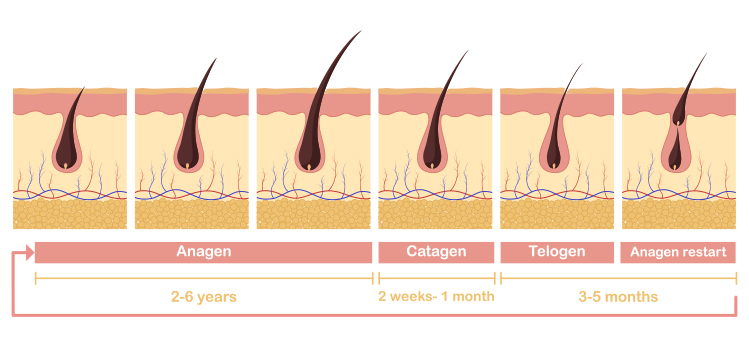
Firstly, stress can affect your hormones. If you're under a lot of pressure, your body produces more cortisol. Too much cortisol can block the anagen phase of hair growth and cause your hair to grow more slowly.
Secondly, stress can cause inflammation in your body, and that's likely a factor in hair loss. Inflammation is your body's defence against harmful microbes, but too much can be detrimental. It can also block hair growth and make your hair fall out.
Thirdly, stress can weaken your immune system. It can exacerbate an existing condition, such as psoriasis or hypothyroidism. For example, women frequently experience thinning hair due to PCOS (Polycystic Ovarian Syndrome).
Understanding the cause of your hair loss can help you treat it more effectively.
Similarly, DHT (dihydrotestosterone) is responsible for male-pattern baldness. When levels rise, hair tends to thin out. Overall, stress may harm hair growth. In rare cases, stress can cause sudden hair loss- "telogen effluvium." This condition is more common in women and involves sudden, dramatic hair loss.
Different Reasons Why Stress Causes Hair Loss
1. The most common way that stress leads to hair loss is by causing your body to release cortisol, which triggers the hair follicles to shrink. The follicles shrink, so less hair grows out. Cortisol is a hormone that increases blood sugar and fat storage. Hence, hair loss increases even if you're not prone to balding.
2. This response works the same way for men and women, although it's more common in women. Stress-related hair loss often starts around the hairline and progresses toward the crown.
3. Stress can also trigger a shedding cycle, in which the hair falls out for no apparent reason. If you're losing a lot of hair, it's time to see your doctor.
4. It can also trigger an autoimmune response called alopecia areata, in which the body attacks the hair follicles. Research suggests that stress contributes to hair loss by disrupting blood flow to the scalp and hair follicles. It, in turn, causes them to die.
5. It can cause the body to produce lower testosterone levels, an essential hormone for hair growth. Low testosterone is at the root of male-pattern baldness, but it can affect women, too, causing them to lose hair.
6. Other causes of hair loss can include illness, thyroid disorders, hormonal deficiencies, anemia, nutritional deficiencies, medications, and underlying medical conditions such as lupus.
7. Stress can trigger hair loss, but the condition can also develop as a result of something else. For example, some women develop hair loss after giving birth, as their bodies go into shock and lose blood.
1) Try reducing your stress. Exercise, meditation, and yoga are all good ways to remove some of that tension from your body.
2) Eat more fruits and vegetables. They're rich in vitamins, minerals, and antioxidants, which keep your scalp healthy.
3) Consult a dermatologist. They can diagnose the underlying cause of your hair loss and prescribe an appropriate treatment plan.
Treatment to Prevent Stress-related Alopecia
Treatment for stress-related alopecia can be complex, and there's no one-size-fits-all approach. Doctors typically prescribe a combination of medications, lifestyle changes, and gentle hair care.
Maintaining a healthy and stress-free lifestyle and nutritious meals are also very important for optimal hair care. Visit your dermatologist for any hair fall related complaints to get an optimal diagnosis and management plan.
Concluison
Stress isn't the only cause of hair loss. But it can be a contributing factor. It can take a toll on your physical health, but now you know it can also cause hair loss. It's imperative to schedule frequent appointments with a dermatologist to confirm the cause of hair loss and get appropriate treatment.
Myth Busters HairFall
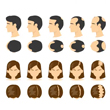
Androgenetic Alopecia - Everything You Need To Know
Have you been experiencing excessive hair fall over a prolonged period of time? It could be an early sign of androgenetic alopecia. It is a hair loss disorder common in both genders and can lead to progressive thinning and even baldness in some patients if not caught and treated early.

How To Make Hair Grow Faster For Men
A head full of healthy hair is a matter of confidence. Hair has its own mechanism of growing and shedding, and it is when this mechanism is thrown off that growth is hindered. Especially in the case of males, hair growth faces a lot of hiccups that can easily be managed.
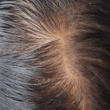
Female Pattern Baldness - Causes & Treatments
Have you suddenly noticed an increase in the number of hair strands on your pillow in the morning? Or is your ponytail getting thinner by day? Well, you might be suffering from female pattern baldness. While that does sound scary, identifying it early on is key to treating this condition effectively. So keep reading to know what this is, how you can identify it, and most importantly, what treatments you can avail of to get your beautiful lustrous hair back.
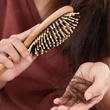
What Are The Reasons For Hairfall?
Almost everyone experiences some amount of hair thinning over the years. Shedding around 50 to 100 single strands of hair per day is considered normal. However, losing more than 150 strands a day, experiencing sudden thinning, or developing circular bald patches on your scalp are reasons for concern. Hair loss occurs when new hair doesn’t grow fast enough to replace the amount of hair you lose daily. Hair can fall due to various reasons, with hereditary hair loss and poor nutrition being the most common hair fall reasons.

Expert Approved Tips For Hair Growth
What can be more debilitating than seeing hundreds of hair strands shedding from your scalp every time you brush your hair? Also, excessive molting occurs during seasonal changes that can be very stressful for you. Although it’s okay to lose between 50-100 strands every day, according to the American Academy of Dermatology, the problem occurs when you start shedding more than normal. But that doesn’t mean you have to feel helpless as there are ways to grow your hair back. Even if you are coping with baldness or alopecia, certain hair growth tips from dermatologists can come to your rescue. Read on to discover how these tips can be your savior when abnormal hair fall problems are in sight.
Trending Videos
+ 5 Sources
LMRC - GGI-CO-A2-DMA-300026127-300026127-WM-J21-282
© 2021 Dr. Reddy’s Laboratories Ltd. All rights reserved.
